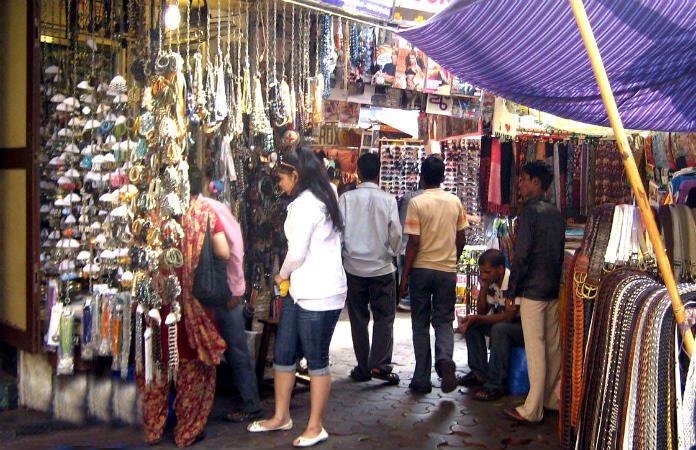You know well that the term startup comes from the West and is mostly associated with building something in terms of complete uncertainty and absence of business model. On the other hand startup also means solving a problem, seeing through a real pain point, truly seeing your customer and empathize with him.
Now why we tell you this is because in India most entrepreneurs and businessman tend to attach themselves to the western aspect of what a startup means – the coolness, the techiness, putting things into place, coding something. They forget that the chole kulche vala is also a startup!
The Varanasi saree vendor is also a startup. Just look at the way the entire floor of the shop is being turned into a sitting place and hundreds of Indians spend hours going through the pieces of clothes. It is no more just an act of buying, it’s a ritual.
So why do the young Indian entrepreneurs forget this? Why do they no longer do darshan? “Gazing” at their customers? Darshan karo? Well, not really!
Why do they choose to ignore the Indian-ness of their customers and then when their businesses fail they again try to seek the reasons through Western lenses, theories and rationalizations? In the West a success of a startup is defined in vertical means. Building something viral that will skyrocket and launch the owner in the stratosphere.
But that was never the case in India.
In India a successful startup is one where you see people around it. It all revolves around the collective and family. You start an Indian story and it immediately begins with parents, evil maid, wife, son being prosecuted into the forest for 14 years. In contrast, you start narrating a Western story and it starts with Hercules, Achilles, a sole hero, all of them killing the weird looking creature, the Minotaur, Chimera.
Let’s get back at the chole kulche vendor. Observe his day. He creates a crowd around his small barrow with sometimes tens of people waiting around him to get the snack?
Is this a successful startup?
Per Western thought – No, because it doesn’t scale!
Per Indian thought – Yes, it is because it creates a collective around him, mass of people who come there because their tastes are being understood and personalized right here on the spot.
Collectiveness. Darshan. Adjustment. Jugaad!
In the West, you bring the warm up snack, the main course and finally the dessert.
In India, you are given an Indian thali where all the food is put together in one go. I may decide to deep my roti into the kheer first. You may decide to roll it and put sabzi on it. Same plate but the food will taste differently for different people. Unfortunately, Indian entrepreneurs subscribe to the Western thought of standardization and scale fast while forgetting that in fact they live in a market far more diverse. I find this so disappointing and ironic in a country like India with such diverse market and traditions.
Customer Hi Bhagwan Hai
Indians will know what “kolam” or “rangoli” in North India means – Creating a design by connecting the dots. Kolam is an offering, which means that the person who makes it know exactly who is it meant for. Unfortunately, Indian entrepreneurs make the kolam before asking for whom that kolam is in the first place.
The people of India do aarti every morning and evening, an act of telling their god which part of their demands has he fulfilled and what is still pending. To “motivate” him to bestow the rest of their demands on them they do offering, swaha, in exchange for tatastu, the benediction. This happens every day in India where millions of gods are been given aarti every day. But mind this. Every god accepts a particular type of offering. The Indian customer would never offer bhel to Krishna or tulsi to Shiva. Why don’t all make aarti to the millions of customers in this country. Why following the Western logic of standardization instead of customizing the experience for your customers (tulsi or bhel)?
Entrepreneurs. It’s time that you get off that shiny flight you have boarded and get back here in order to truly see your customers and his uniqueness.
In other words:
1. Darshan karo
2. Aarti karo
May all of us who are building their small businesses start the day of tomorrow by gazing at our customer and talk to him the way we talk and love and fight every day to bhagwan, to our personal god.
























































